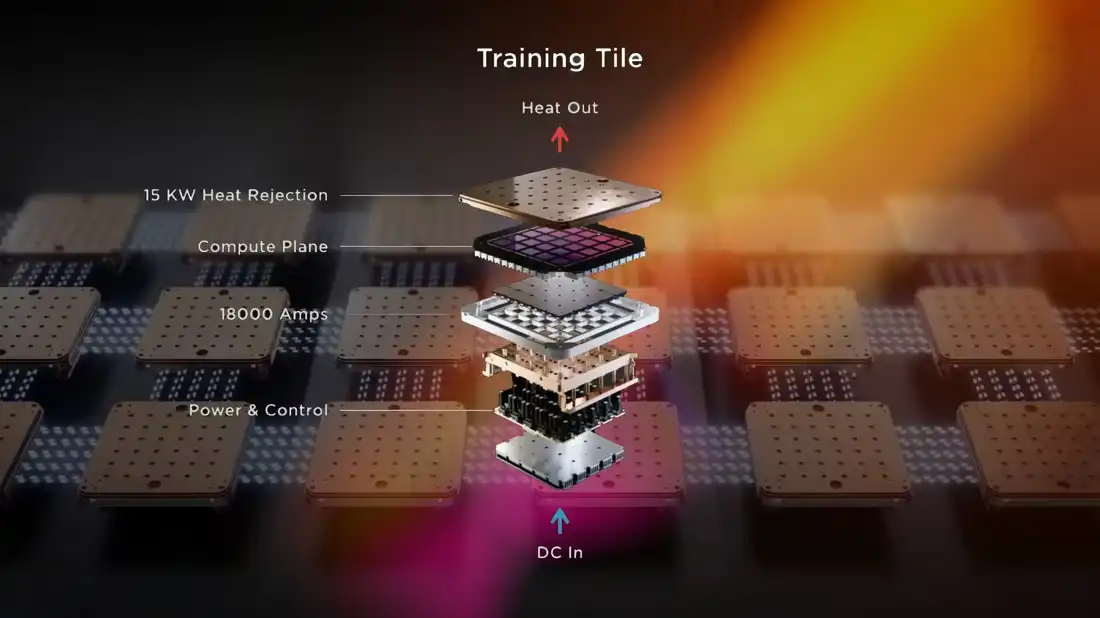At the forefront of AI innovation, Tesla’s Dojo system is transforming how we approach neural network training with its cutting-edge Dojo chips. These chips are designed to push the boundaries of performance, throughput, and bandwidth, catering to the demanding needs of advanced AI systems. From the smallest training nodes to expansive multi-die training tiles, the Dojo chips are engineered with precision to maximize efficiency at every level. The design process encompasses not just the chip architecture but also physical aspects like floor-planning and methodology to ensure optimal performance. Pre-silicon verification and post-silicon validation are critical steps in this journey, guaranteeing functional correctness before deployment. Additionally, custom compilers and drivers are developed to fine-tune power usage and performance, ensuring that the entire Dojo system operates at peak efficiency. As Tesla continues to refine its arithmetic formats and methods, the Dojo chips stand as a testament to the company’s commitment to advancing AI technology and accelerating the future of neural network training.
Check Dojo Chip latest Whitepaper
Tesla’s Dojo chips are designed to drive forward AI and machine learning capabilities with unparalleled performance and efficiency. Their applications span a wide range of fields, reflecting their versatile and powerful nature. Here’s how Dojo chips are set to impact various domains:
1. Advanced AI Training
Neural Network Training: The primary application of Dojo chips is in the training of large-scale neural networks. These chips handle massive data sets and complex computations with high throughput, accelerating the training process and enabling more sophisticated models.
AI Model Development: Researchers and developers can use Dojo chips to experiment with and refine new AI models, pushing the boundaries of what’s possible in machine learning and artificial intelligence.
2. Autonomous Vehicles
Real-Time Processing: In autonomous driving, Dojo chips process real-time data from sensors, cameras, and lidar to make split-second decisions. This capability enhances the safety and efficiency of self-driving systems by allowing rapid and accurate data processing.
Simulation and Training: Tesla utilizes Dojo chips to run simulations of driving scenarios, which helps in training AI models that control autonomous vehicles. This extensive training improves the vehicle’s ability to handle diverse and complex driving environments.
3. Robotics
Robotic Control: In robotics, Dojo chips enable the processing of sensory data and control commands with high precision. This facilitates advanced robotics applications, including industrial automation, service robots, and personal assistants.
Motion Planning: The chips support complex motion planning algorithms that allow robots to navigate and interact with their environment effectively, improving their autonomy and functionality.
4. Healthcare
Medical Imaging: Dojo chips can be used to accelerate the analysis of medical images, such as MRIs and CT scans. Enhanced image processing and analysis capabilities lead to quicker diagnoses and better patient outcomes.
Predictive Analytics: In healthcare, these chips support predictive models that analyze patient data to forecast health trends and outcomes, contributing to personalized treatment plans and proactive care.
5. Finance and Trading
Algorithmic Trading: In the finance sector, Dojo chips enhance the performance of algorithmic trading systems by processing large volumes of market data in real time. This capability allows for more accurate and faster trading decisions.
Fraud Detection: The chips also improve fraud detection algorithms by analyzing transaction patterns and anomalies with greater speed and precision, enhancing security and risk management.
6. Scientific Research
Simulations and Modeling: Dojo chips are instrumental in running complex simulations and models in scientific research, from climate modeling to particle physics. Their high computational power enables more detailed and accurate research outcomes.
Data Analysis: They also facilitate the analysis of large data sets generated in scientific experiments, speeding up the discovery process and providing deeper insights into various scientific phenomena.
7. Consumer Technology
Smart Devices: In consumer electronics, Dojo chips can be used to enhance the capabilities of smart devices, such as home assistants and wearable technology. They enable more responsive and intelligent interactions with users.
Augmented Reality (AR) and Virtual Reality (VR): The chips support the processing required for immersive AR and VR experiences, providing seamless and high-quality interactions in gaming, simulations, and training applications.


